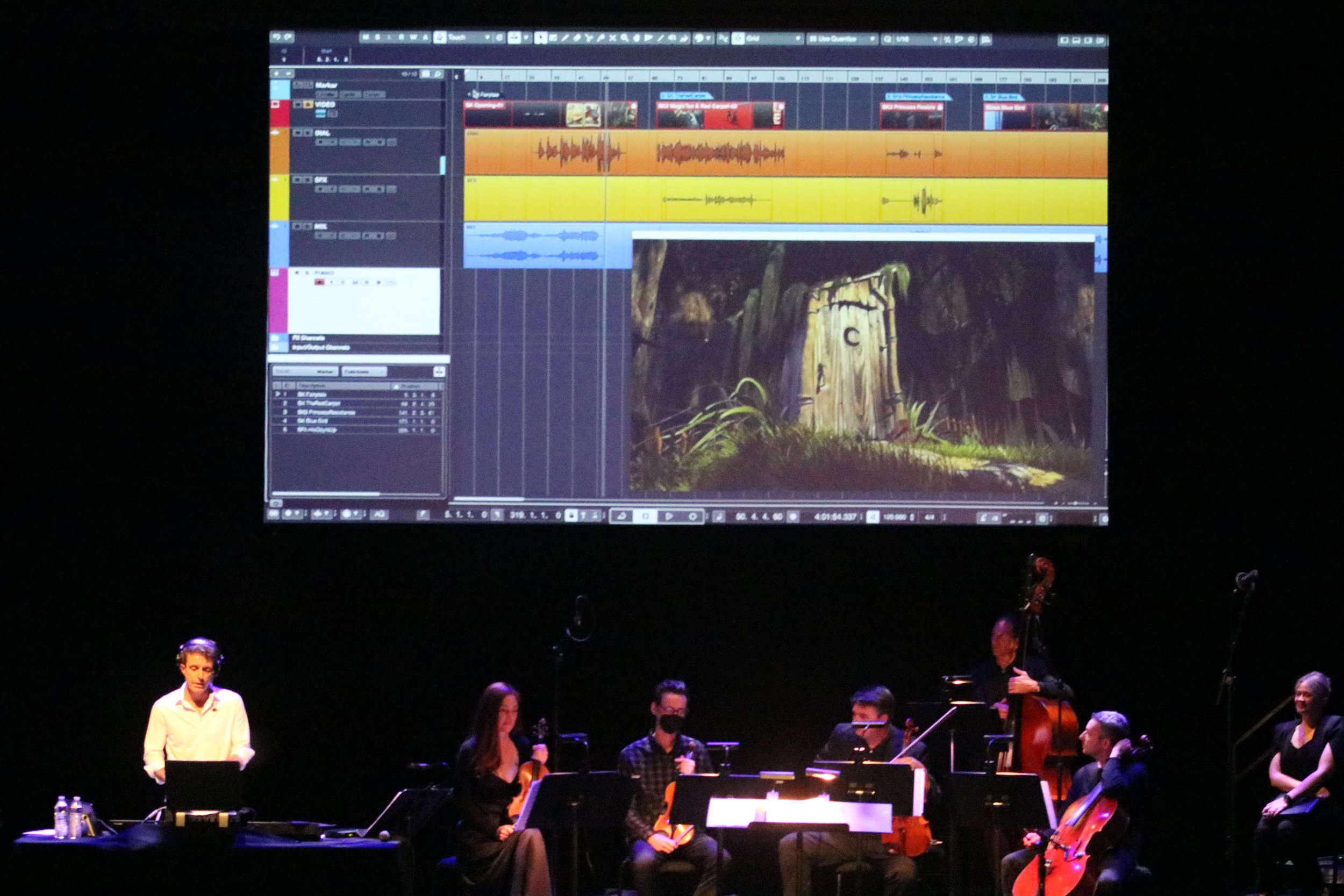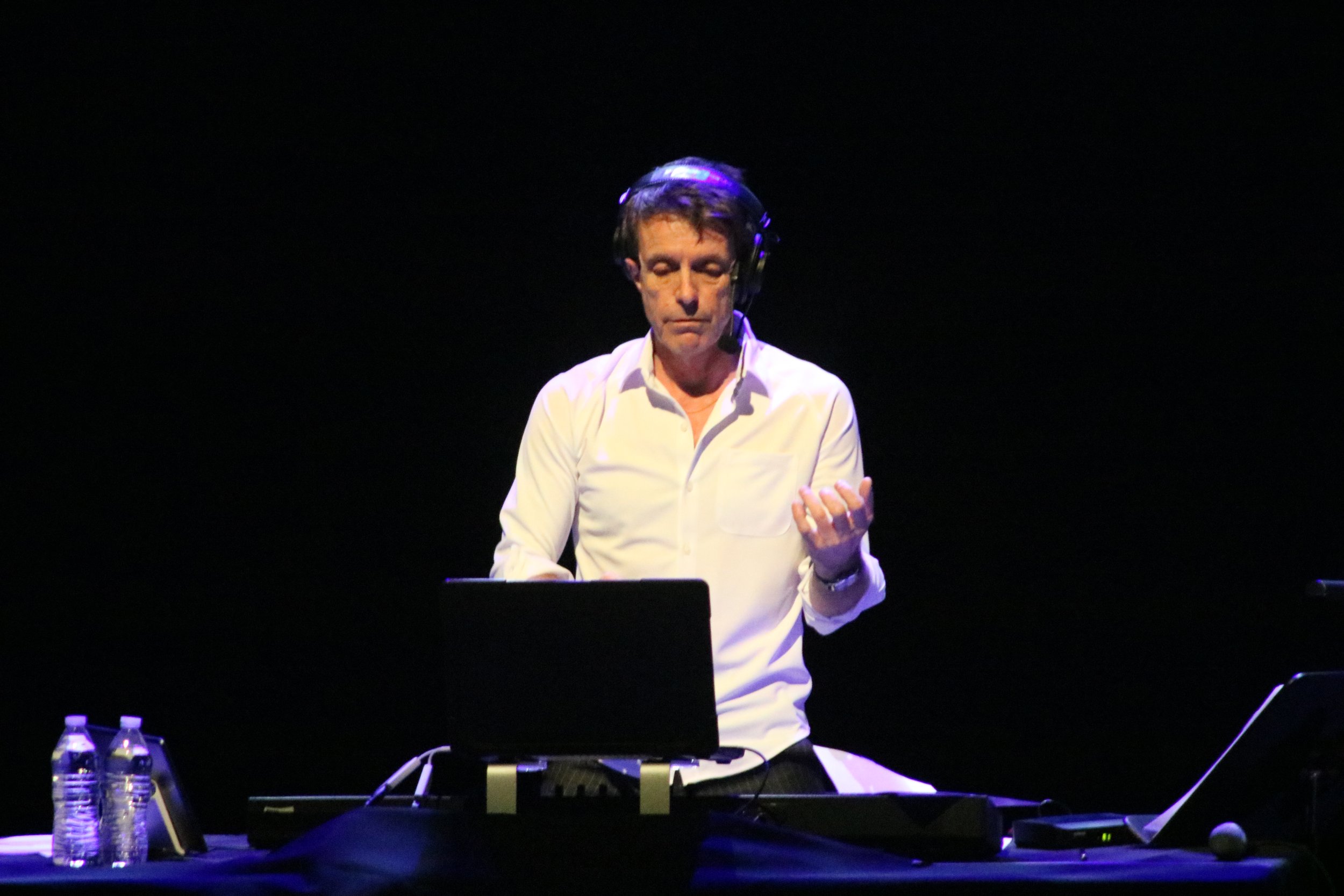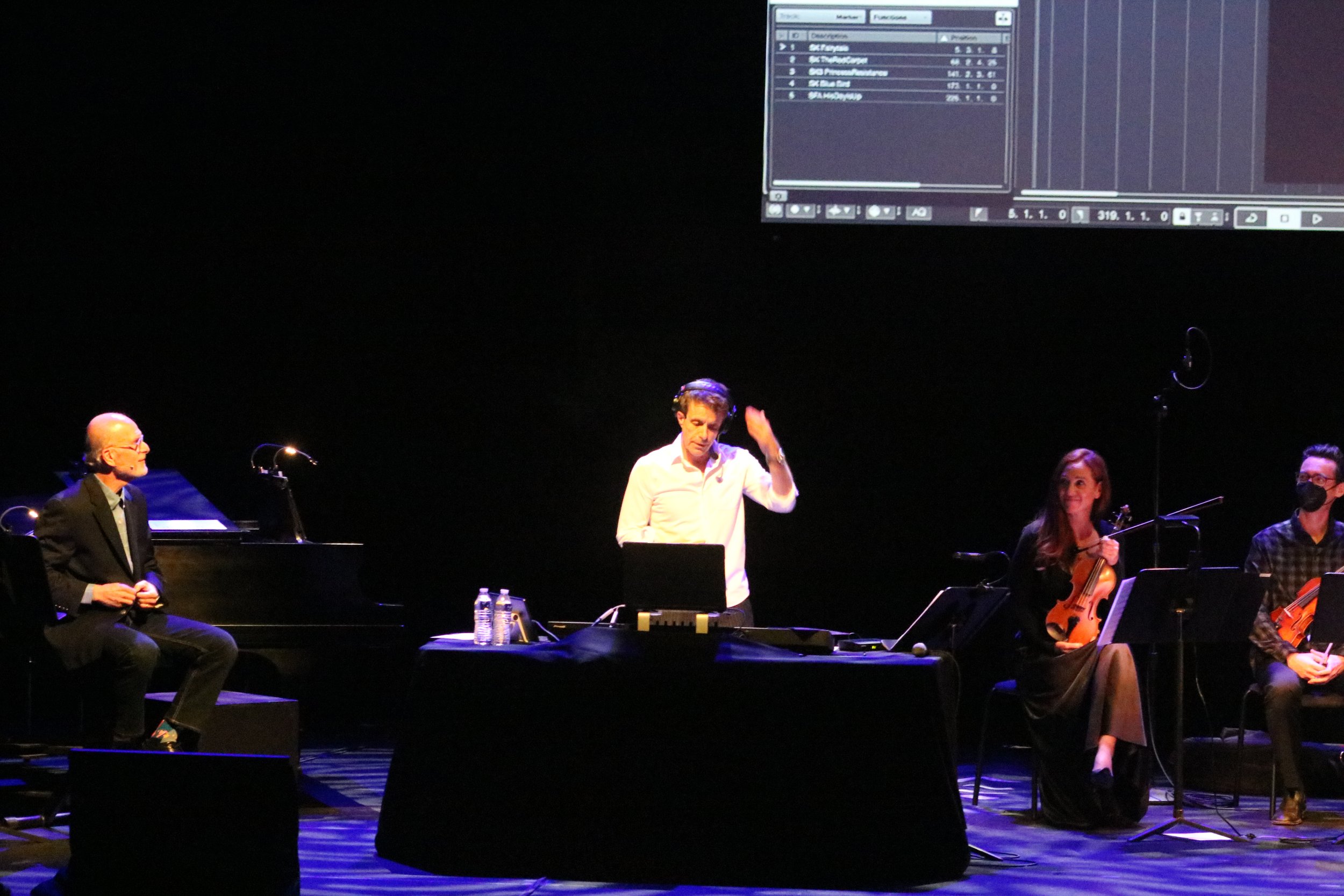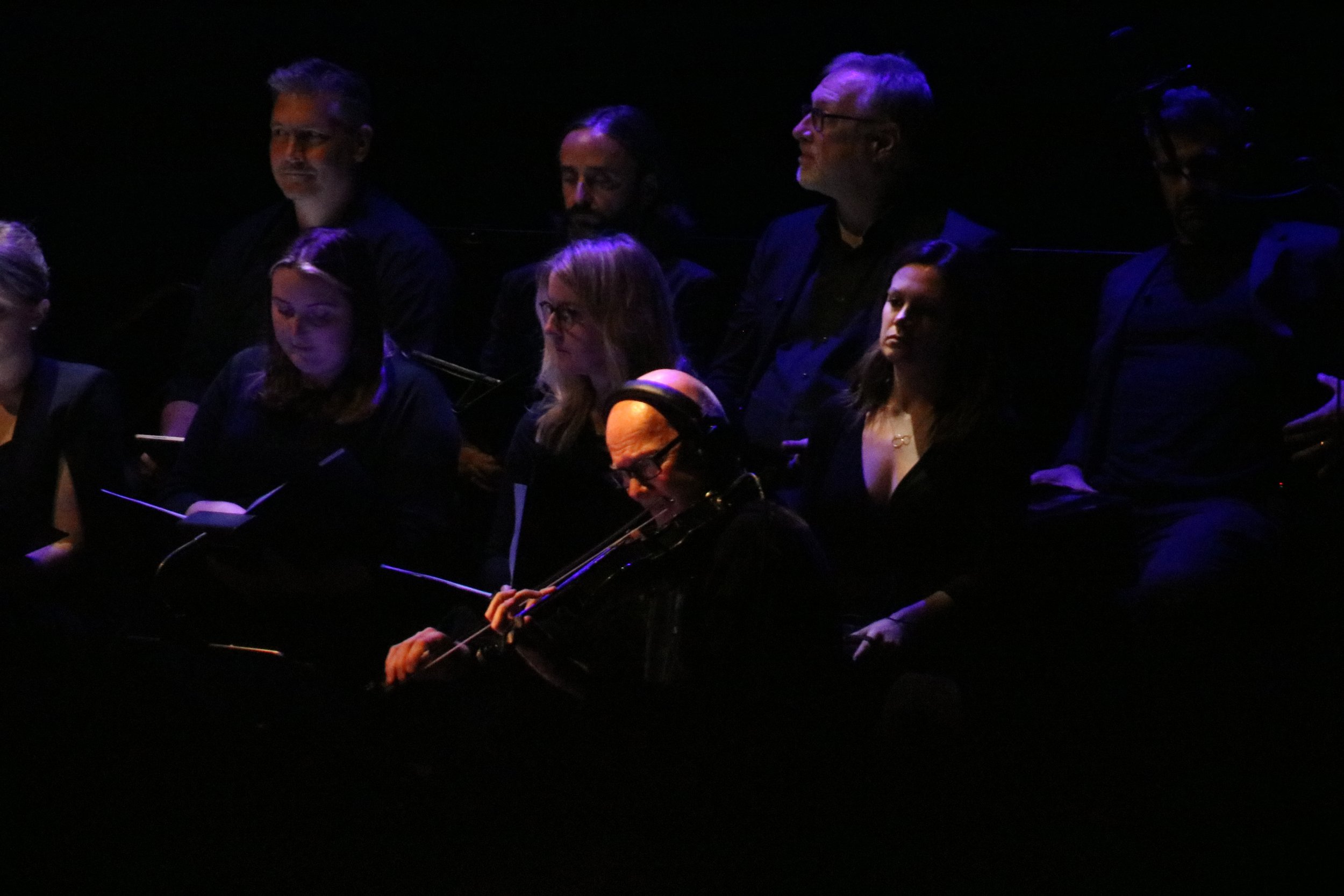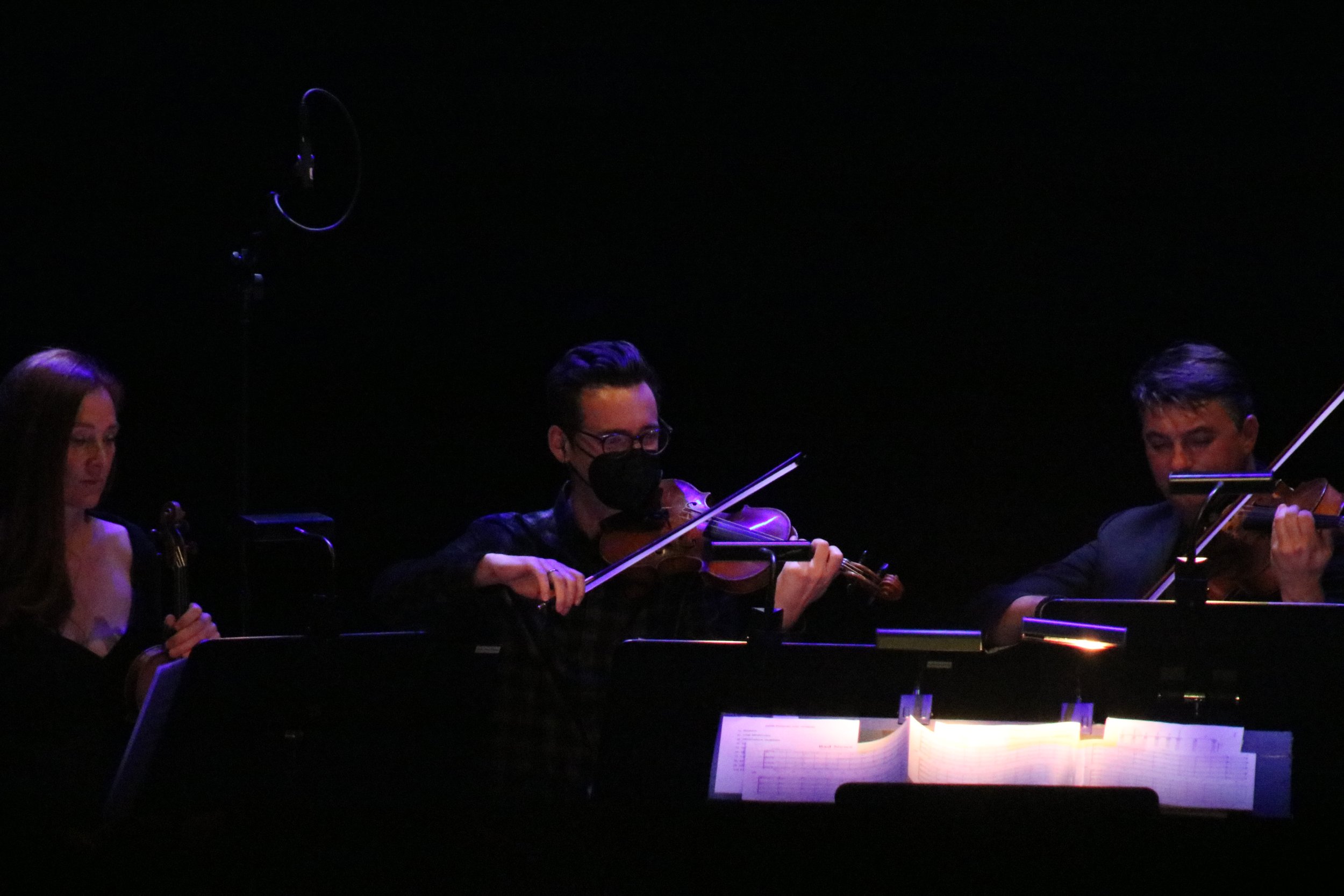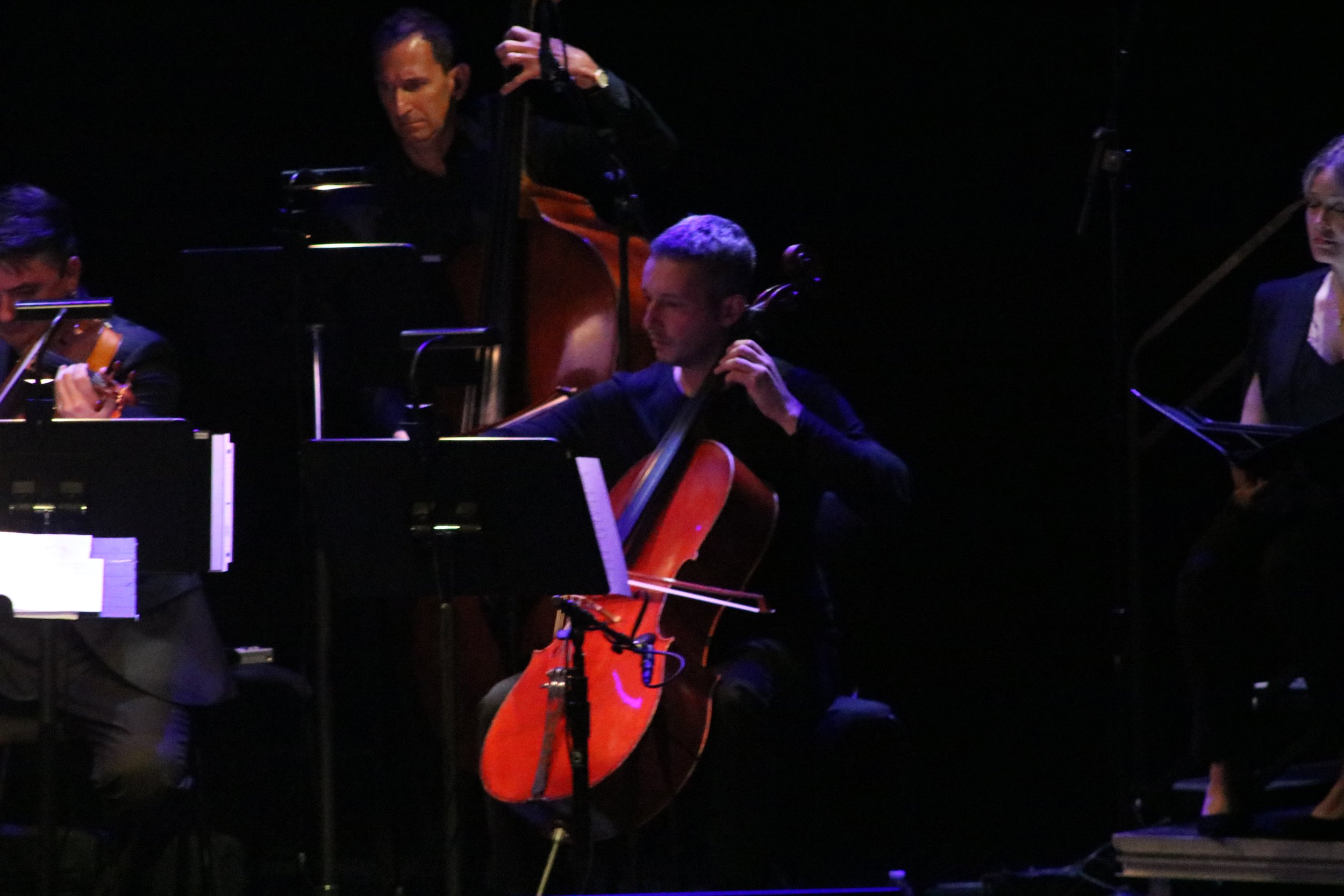Film Composer Inspires the Next Generation at Cue the Music
In the latest installment of the live series Cue the Music, renowned film composer Harry Gregson-Williams reflects on his musical journey thus far, breaking down his scores alongside movie clips and engaging conversation.
On Wednesday, Oct. 26, acclaimed film composer Harry Gregson-Williams took the stage at The Eli and Edythe Broad Stage for the latest edition of Cue the Music.
Cue the Music, previously recognized as Cue & A before rebranding, is an ongoing original Broad Stage production hosted by former President of Fox Music, Robert Kraft. With every edition, Kraft welcomes a seasoned composer to have a chat and dive into the magic behind their notes.
Gregson-Williams walked across the dimly-lit stage to join his ensemble of a choir, a string quartet, and an electric violinist. By simply greeting the audience, he ignited an eruption of applause. Kraft took a moment to give the celebrated composer an elaborate introduction, listing some of his most esteemed work in movies and television.
Some of that work included popular movies like “Shrek,” “The Martian,” “Veronica Guerin,” “Gone Baby Gone,” “Man on Fire,” “Kingdom of Heaven,” “Spy Game,” and “Unstoppable”.
Behind Gregson-Williams hung a screen which his film scores were projected on. There he displayed sheet music and layers of recorded tracks making up his compositions. He alternated between these score analyses and seating himself at the piano to play live.
“I’m quite comfortable with C minor,” he said, before performing the iconic “Shrek” melody.
From a jazzy big-band spin on the score in "Shrek 2" to a melancholic change in "Shrek 4," he demonstrated how his simple tune served a number of contrasting themes in the animated saga.
Over the course of the evening, Gregson-Williams led the audience through the stories told in each movie and the music serving as the storyteller. In a particular recollection, he shared his experience scoring the biographical film, “Veronica Guerin.” The true story follows an Irish journalist murdered for her investigations and coverage of Dublin’s drug lords.
During filming, director Joel Schumacher invited Gregson-Williams to Ireland to meet the cast and get a sense of the ambiance. Shortly upon arrival, he heard a young boy singing folk songs in the distant streets of Dublin. Captivated by the boy’s song, the composer approached him. With no recording device to encapsulate the moment, Gregson-Williams returned to L.A. feeling he had left a treasure behind.
He called on his younger brother for help, who was also emerging as a film composer at the time. With only a vague description of the boy’s red hair and where he found him on Grafton Street, his brother paid his to assistant fly to Ireland in search of him. After three attempts, the boy was found, forms were signed, and he accompanied Gregson-Williams' film score with his voice.
In discussing the sensitivity behind scoring Guerin’s death scene, Gregson-Williams said, “I kept thinking, how am I going to score this moment? I can’t do strings and an oboe. This seemed to solve the problem because it came from the heart and it was slightly unusual.”
As the Broad Stage adjoins the Santa Monica College (SMC) Performing Arts Center, music students filled the seats that evening, eager to pick the composer’s brain — one of them being Alex Homami. Homami is an SMC student studying music composition and aspiring to work as a film composer.
“The biggest takeaway for me was how much he seemed to truly enjoy and have a passion for his craft and just how much that contributes to the products he puts out,” Homami said.
Prior to the show, Gregson-Williams sat down with The Corsair and shared his hopes that the event would inspire such students through stories of his own journey.
“I studied music since I was about six years old. I spent years teaching it, playing it, performing it, not writing it,” he said. “My composing career really started after I had figured out that I was interested in film music.”
The composer explained where his interest in the craft was piqued — a chance meeting around early 1995 in London with Hans Zimmer. Zimmer is also a world-renowned film composer, known for his work in movies such as “Lion King,” “Inception” and the “Batman” trilogy.
“He had been visiting London and recording a score and he'd taken one room in a studio complex that I was working in,” Gregson-Williams said. "And I was beginning to learn about music for TV and music for film, and he showed up, and we just became fast friends.”
Zimmer encouraged Gregson-Williams to accompany him to Los Angeles where he could further learn the art of film composing. For several years he worked closely with Zimmer, assisting him and collaborating on scores. He credits Zimmer for his profound knowledge of the craft and explains when he felt ready and bold enough he stepped out on his own.
“At some stage one has to emerge and as I think he put it, move down the road a bit. So that's what I did.” he said.
Since then, Gregson-Williams has applied his musical knowledge to over a hundred films, television programs, and video games. Cue the Music gave him the opportunity to share his body of work, which was broken down and celebrated by Kraft and attendees.
To Gregson-Williams, Kraft was not just a president, but a friend.
“I've known Robert Kraft for a long time. Actually, I knew him in his manifestation as the president of music of Fox. When I started out as a composer in the middle 90s, one of the very first films I did, [was] a film called ‘Light It Up’,” he said.
Fox told Gregson-Williams that the head of music would visit his studio. Kraft offered the embryonic composer guidance, leading to the beginning of a long-lasting friendship.
"He helped me through that score, gave me some advice, and I did a lot of films for Fox that followed," Gregson-Williams said.
“When Robert approached me about Cue the Music I didn't hesitate, and I'm really happy to share my process with people,” he said.
The composer concluded the night’s program with his score from “Unstoppable,” which Kraft noted was a perfect ending, as he saw Gregson-Williams as unstoppable himself. Kraft opened the conversation with a Q&A, inviting audience members to engage with the composer. After several questions, Homami was the last, seeking advice for film composers on the rise.
Gregson-Williams explained he is a firm believer that there is a place for everyone in music and music itself can be found everywhere, or in every crack and crevice, as he put it.
In the days following the event, Homami reflected on how the performance resonated with him.
“It was apparent through the show when talking about his experiences, he was enthusiastic and still held interest in this art form,” he said. “This had a very profound effect on me because it’s everyone’s dream to be in a profession they truly love and are happy to be doing.”
Article updated Nov. 7 with coverage of Cue the Music event.

